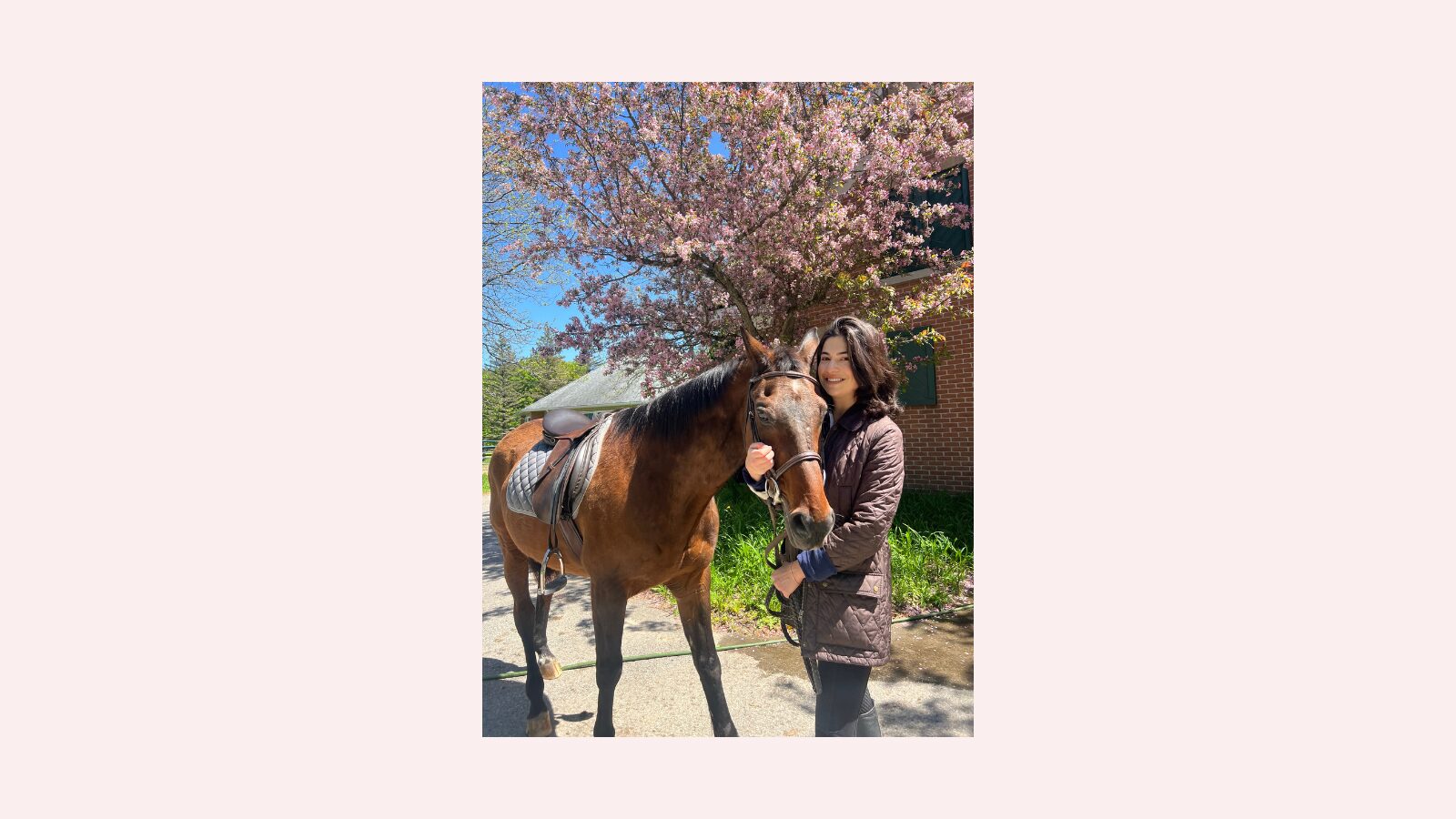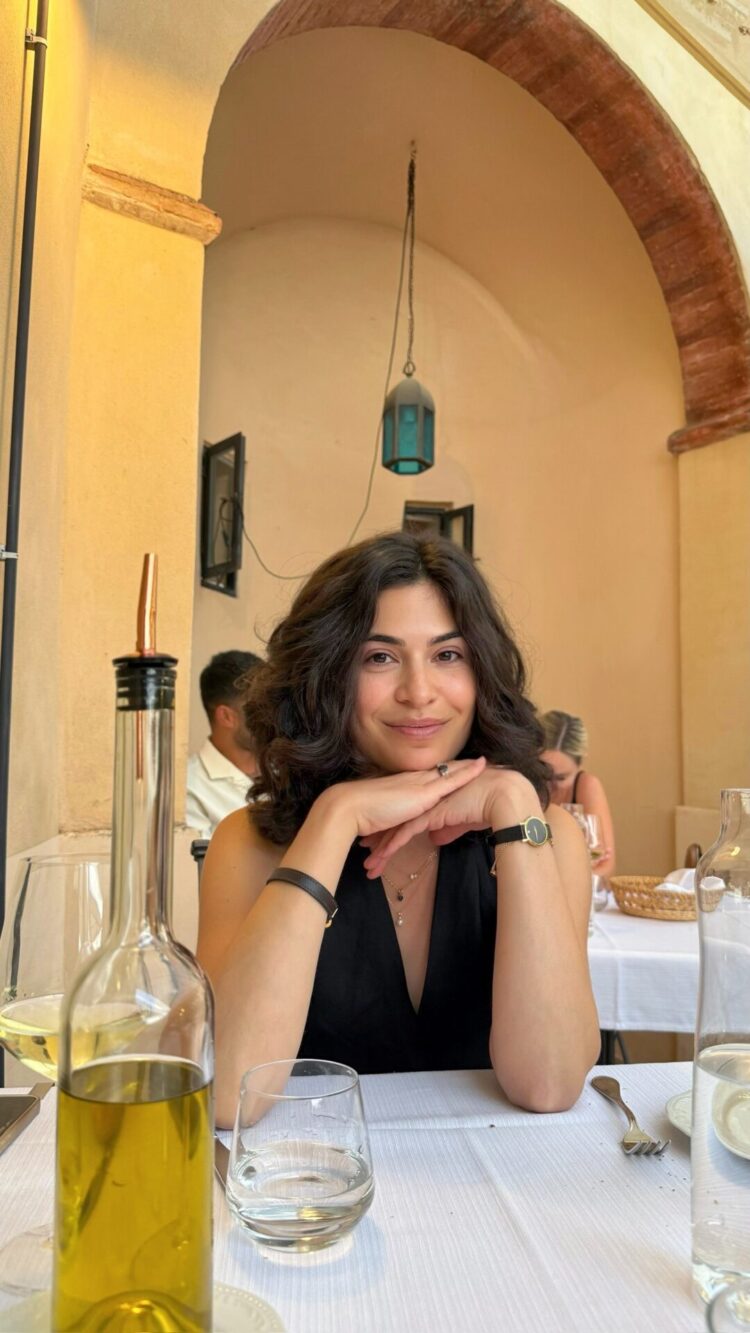Where Old Meets New
5 MINS to read

Breast cancer struck my life at an interesting time. I had just made a major career shift, moved in—and quickly moved out—of my now ex-boyfriend’s place, and I was only six months out from an unexpected gallbladder and hernia surgery. And to top it off, my sister had cancer at the same time as me—which is how mine was found. Life as I knew it went out the window.
Treatment was awful. But it’s been the post-treatment process that has tested me the most. Faced with rebuilding nearly every part of my life, I found myself questioning everything. Not only did life look different—without hair, brows, and with a body I didn’t recognize, thrown into menopause and left with giant styes on my eyes from
chemo—I didn’t look like me either. My exterior matched the trauma inside. I felt like a stranger in my own life.
Now, at 18 months post-chemo, my hair and brows have grown back. My eyes have healed. I have started to settle into this new body. In a lot of ways, a new version of me has emerged. But “living well” after breast cancer? That question still lingers. I haven’t found a perfect answer, and I am not sure I ever will. What I have found is acceptance: that the meaning of “living well” will keep evolving, depending on what life throws at me.
When I finished treatment, I assumed I would feel relieved. That I would pick up where I left off and get back to being “myself.” But I felt physically depleted and emotionally disconnected—from my friends, my family, and even from my own body. I also had to rebuild the basics: my health, my career, and my relationship status. I tackled each with the same intensity I brought to surviving cancer. I had to be even healthier than before, so this would never happen again. I had to heal every ounce of past trauma. I had to start a new, big career. I had to jump back into dating.
What that looked like in reality was an exhausting attempt to fix everything all at once—with no room for softness, spontaneity, or joy. I spent a year chasing some future version of myself that would finally feel “healed,” but instead, I burned out. After a few health setbacks, I was forced to pause. To be still. To ask myself: If setbacks are inevitable—whether in health, work, or love—what’s within my control? What can I build into my life, no matter the circumstances, that brings me joy and makes me feel most like myself? That question became my anchor.
It led me to let go of obsessive healing protocols. To pare down my work and social life. To take up horseback riding (my new obsession). To carve out blocks of time each day for movement, nature, and stillness. And slowly, it worked. I started to feel more like me—not the old me, not the ideal future me, but the version of me that exists right now. And that came with a feeling I had missed: a small but steady return of my zest for life.
What I’ve come to realize is this: living well after cancer isn’t about returning to your old life or perfecting a new one. It’s about letting the old and new versions of you merge. It’s about making peace with the parts of you that changed, and choosing, again and again, to find joy in small things—no matter what else is going on.
Some days, living well means being productive, eating well, and checking off goals. Other days, it means canceling plans, letting myself cry, or doing nothing at all. And all of it counts. All of it is part of the patchwork that is survivorship. There’s no single path forward after cancer. It’s a constant process of trial and error. Of trying things on, letting go of what no longer fits, and building a life that feels like yours. And in that process, I’ve discovered that “living well” isn’t a goal. It’s a practice. One rooted not in perfection or fixing, but in presence.
Robby Spring • Patient advocate and partner. Diagnosed at 35. IDC, Stage I, ER+, PR+.
Robby is a patient advocate and partner with over 15 years of experience across academia, hospitals, government, industry, and the nonprofit sector. Both a breast cancer survivor and care partner to her mom and sister, Robby brings both professional expertise and personal insight to her work. She is an advocate with the Canadian Cancer Society and a Key Collaborator with Rethink Breast Cancer.
With a background in neuroscience and translational research, Robby focuses on advancing early-stage innovation and policy in oncology through lived experience. She helps bring together patients, innovators, and decision- makers to improve health tech adoption, patient engagement, and system-level change that reflects what matters most to those directly impacted.
IG/TT: @robby.spring
linkedin.com/in/robby-spring

This piece has been republished with permission from Wildfire Journal. It first appeared in the “Living Well” issue, published in August 2025. Find the full issue and learn about using writing to reclaim and heal your own story in a writing workshop at wildfirecommunity.org.